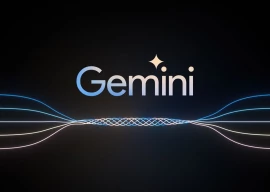1734419473-0/Copy-of-Untitled-(41)1734419473-0.png)
OpenAI has announced that it is making its ChatGPT-powered internet search feature available to all users, significantly intensifying competition with Google.
This feature, which was initially launched in late October for paying subscribers, now enables all logged-in ChatGPT users to receive “fast, timely answers” along with links to relevant web sources, replacing the need for traditional search engines.
Kevin Weil, OpenAI's Chief Product Officer, explained the move in a YouTube video: “We’re bringing search to all logged-in free users of ChatGPT. That means it’ll be available globally on every platform where you use ChatGPT.”
The new feature provides real-time information from across the web, a significant upgrade to ChatGPT, which previously provided answers based on pre-existing data up until a certain cutoff date. With the addition of search capabilities, the chatbot now has the ability to access current and relevant web sources.
Adam Fry, ChatGPT Search product lead, described the update: “We’re really just making the ChatGPT experience that you know better with up-to-date information from the web.”
The interface, as demonstrated by OpenAI, resembles the search results seen in Google and Google Maps, but without the clutter of advertisements. It also mirrors the conversational format seen in AI-powered search engines like Perplexity, which provides users with answers alongside the sources referenced.
“Examples of the new interface demonstrated by OpenAI resembled search results provided by Google and Google Maps, though without the clutter of advertising,” said the company.
Rather than launching a separate product, OpenAI has integrated the search functionality directly into the existing ChatGPT experience. Users can choose to enable the feature by default or activate it manually via a web search icon.
This move is likely to further fuel the rivalry between OpenAI and Google, with both companies vying to dominate the search engine market.
OpenAI’s growing influence, bolstered by major investors such as Microsoft, has positioned the company to challenge Google's longstanding dominance in the sector.
The shift also raises questions about OpenAI's relationship with Microsoft, a major investor, as Microsoft is also working to expand its Bing search engine and integrate AI technologies into its offerings. With the new search feature, OpenAI is poised to attract millions of new users, potentially increasing its costs and computing needs as it continues to grow.
“We’re rolling this out to hundreds of millions of users, starting today,” Fry added, signaling the global reach of this update.

1734435589-0/Untitled-(51)1734435589-0-165x106.webp)

1734434763-0/Untitled-(50)1734434763-0-165x106.webp)

1734419473-0/Copy-of-Untitled-(41)1734419473-0-270x192.webp)


1731570357-0/elon-musk-(1)1731570357-0-270x192.webp)

1732259816-0/Express-Tribune-(4)1732259816-0-270x192.webp)








COMMENTS
Comments are moderated and generally will be posted if they are on-topic and not abusive.
For more information, please see our Comments FAQ